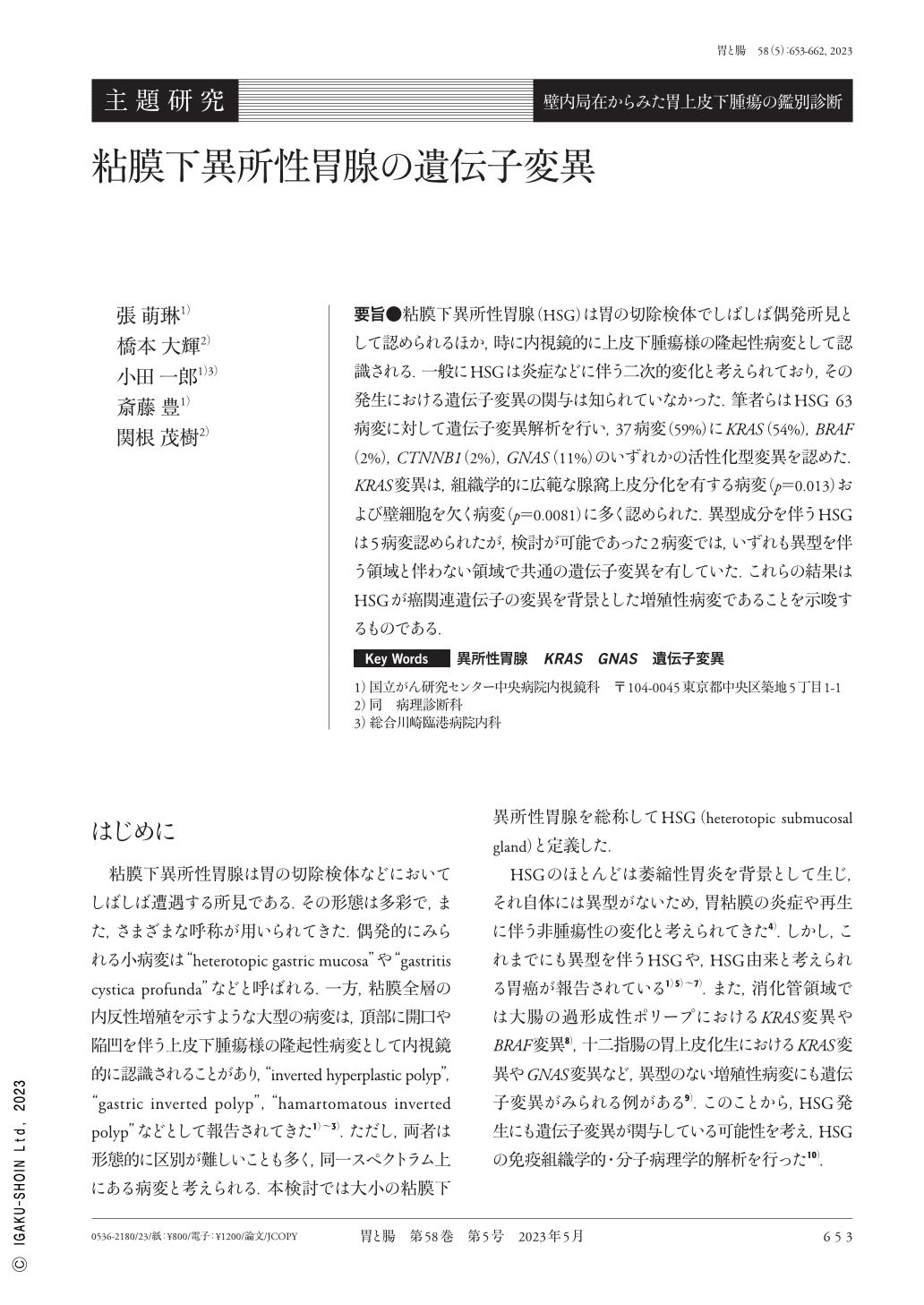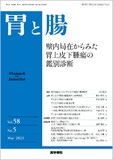Japanese
English
- 有料閲覧
- Abstract 文献概要
- 1ページ目 Look Inside
- 参考文献 Reference
要旨●粘膜下異所性胃腺(HSG)は胃の切除検体でしばしば偶発所見として認められるほか,時に内視鏡的に上皮下腫瘍様の隆起性病変として認識される.一般にHSGは炎症などに伴う二次的変化と考えられており,その発生における遺伝子変異の関与は知られていなかった.筆者らはHSG 63病変に対して遺伝子変異解析を行い,37病変(59%)にKRAS(54%),BRAF(2%),CTNNB1(2%),GNAS(11%)のいずれかの活性化型変異を認めた.KRAS変異は,組織学的に広範な腺窩上皮分化を有する病変(p=0.013)および壁細胞を欠く病変(p=0.0081)に多く認められた.異型成分を伴うHSGは5病変認められたが,検討が可能であった2病変では,いずれも異型を伴う領域と伴わない領域で共通の遺伝子変異を有していた.これらの結果はHSGが癌関連遺伝子の変異を背景とした増殖性病変であることを示唆するものである.
The heterotopic submucosal gland(HSG)is a common incidental finding in gastrectomy specimens and is occasionally recognized as polyps during endoscopic examination. However, the involvement of genetic alterations in HSG development remains unclear. We analyzed 63 gastric HSG lesions using targeted next-generation sequencing and identified oncogenic mutations in a total of 37(59%)lesions, which including activating KRAS, BRAF, CTNNB1, and GNAS mutations in 34(54%), 1(2%), 1(2%), and 7(11%)lesions, respectively. The HSG lesions harboring a KRAS mutation were more likely to present extensive foveolar differentiation(p=0.013)and absence of parietal cells(p=0.0081). Concordant genetic alterations were detected between the non-dysplastic and dysplastic areas of HSG lesions with a dysplastic component. Our study demonstrated that a major proportion of HSGs were proliferative lesions associated with oncogenic mutations.

Copyright © 2023, Igaku-Shoin Ltd. All rights reserved.


